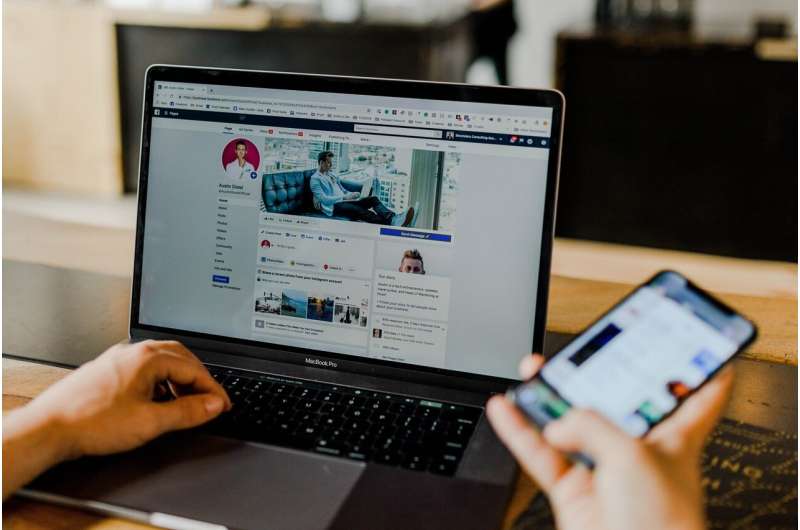Why our news consumption might be more worrisome than misinformation

Misinformation and echo chambers are often used to explain polarization and political divides between people. New research, however, finds there is another factor we should worry about, namely our online consumption of quality news, or exactly the lack of it. Most people do not read misinformation or inhabit echo chambers or radical rabbit holes.
As this project finds, they do consume an alarming low amount of quality news. Finding ways to expose people more to trustworthy and reliable news sources could help with better informed citizens and tackling polarization.
Communication researcher Magdalena Wojcieszak is about to finish her 5-years research project EXPO. To understand increasing populism and polarization, and how these can be combatted, the original aim of this project was to study when and where people encounter diverse news and political viewpoints and the effects of these encounters.
“We know that polarization, populism, and misinformation are on the rise. Many hoped that exposing citizens to more diverse and dissimilar views would make them more tolerant and open to different perspectives, and less polarized and hostile toward the other political side.” During the multi-method analysis, Wojcieszak and her team however came to another alarming finding.
Data on online behavior from over 7,000 people
With her team, Wojcieszak collected data on online behavior from over 7000 people in the Netherlands, Poland, and the United States. They used a special open-source tool to track people’s browsing history and paired these online behavioral traces with over-time surveys that the same participants completed.
“Every three months we asked them to answer questions on their attitudes, opinions, behaviors, knowledge level, misinformation, polarization, and more. We then used innovative computational social science methodologies to trace and classify exactly what people consumed online over a 9-month period and the effects of this consumption.”
People hardly consume news or politics online
The most striking finding turned out to be that people hardly consume news or politics online.
“Across the three countries and during nine months of online browsing, online news consumption accounted for only 3.4% of all URLs visited by the participants. And we did account for people’s news visits on social media platforms,” Wojcieszak explains the results. “Exposure to hard news or political topics in those news visits was even less than 1%. Most people do not go to news websites for political information. They go for sports, weather, or cooking recipes.”
These numbers of 3,4% and 1% are much lower than those we can find in some other reports on online news consumption, like the annual Reuters Digital News report. “An important difference is that the Reuters report relies on self-reports on news exposure,” explains Wojcieszak this difference.
“From many years of research, we know that such self-reports are not accurate. Social desirability—people thinking they should read news every day—and recall biases—people thinking they consumed news when they did not- make people overestimate their news consumption. A German study for example showed that participants thought they read the news, when they actually only scrolled passed it in their Facebook timeline.”
No effect of diverse views
Back to the original question and the effect of exposure to opposing viewpoints, Wojcieszak and her team did not find any effects. “We looked explicitly at exposure to partisan news from one’s own side, exposure to centrist news and exposure to news from the other side of the political spectrum. We found that people’s attitudes did not become more extreme over-time and people did not become more hostile towards their political opponents, nor the opposite.”
In addition, in an innovative experiment in the US, the team paid strong partisans to visit dissimilar partisan sources. “For example, if you were an American democrat, we gave you money to visit very right leaning sources, such as Breitbart or The Blaze, for a certain period. And if you were a republican, we paid to visit very left leaning sources, such as Mother Jones or Democracy Now,” explains Wojcieszak. “We did not find any backfire effects. People did not become more polarized, but they also did not become less polarized.”
Increasing exposure to quality news could have an effect
Increasing exposure to quality news could influence people’s attitudes for the long term believes Wojcieszak. “We should not only worry about things like misinformation and echo chambers but also look at the majority of people who do not consume any news or political information. We should study how we can engage these often-disengaged citizens in the political process by exposing them more to quality and verified news and thereby including their more moderate voices in the political arena.”
To expose people to more quality and diverse news, Wojcieszak sees a role for scholars and their focus of study, but also for journalists and policy makers. “Research has found that people might be more engaged with news when they can read more stories of consensus, and less of conflict and political divide. And maybe there are ways to encourage social media platforms to promote or amplify quality news in their recommendations and systems.”
Citation:
Why our news consumption might be more worrisome than misinformation (2023, June 1)
retrieved 2 June 2023
from https://phys.org/news/2023-06-news-consumption-worrisome-misinformation.html
This document is subject to copyright. Apart from any fair dealing for the purpose of private study or research, no
part may be reproduced without the written permission. The content is provided for information purposes only.
For all the latest Science News Click Here
For the latest news and updates, follow us on Google News.

